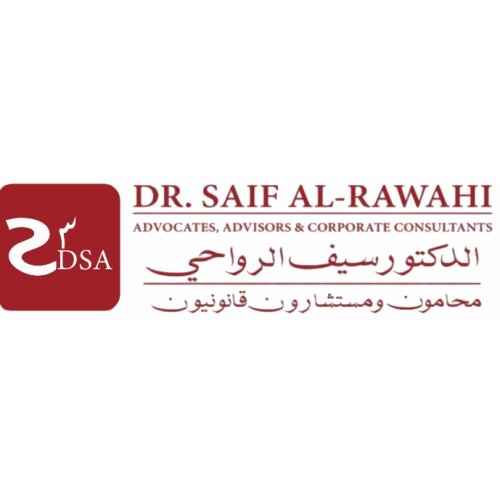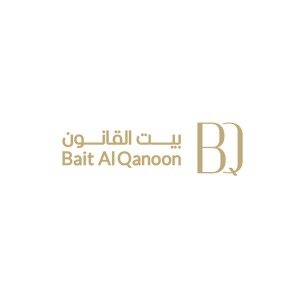Best Public-Private Partnerships (PPP) Lawyers in Oman
Share your needs with us, get contacted by law firms.
Free. Takes 2 min.
Or refine your search by selecting a city:
List of the best lawyers in Oman
About Public-Private Partnerships (PPP) Law in Oman
Public-Private Partnerships, commonly abbreviated as PPP, are collaborative projects between government entities and private sector businesses that deliver public services, infrastructure, or facilities. In Oman, PPP has gained increasing prominence due to its potential to boost efficiency and bring private sector innovation to public projects. The legal framework in Oman aims to balance government oversight with commercial flexibility for investors and operators. Recent regulations have clarified procedures for project selection, bidding, contract management, dispute resolution, and risk allocation, ensuring that both public interest and business needs are protected.
Why You May Need a Lawyer
Engaging in PPP arrangements in Oman involves navigating complex legal and regulatory requirements. Here are key situations where consulting a lawyer is critical:
- Reviewing and drafting PPP contracts to ensure your interests are safeguarded and regulatory compliance is met
- Participating in government tenders for PPP projects and understanding eligibility criteria
- Negotiating with government agencies on project scope, delivery methods, payments, and risk-sharing models
- Resolving disputes related to project delays, compensation, or contract interpretation
- Addressing compliance issues related to labor, land use, environmental obligations, and financing
- Advising on the transfer, sale, or restructuring of project assets or shares
- Ensuring that international investors understand Omani regulatory specifics and foreign investment restrictions
Local Laws Overview
Oman has developed a dedicated legal regime to govern PPPs, aiming to encourage private investment while securing public benefits. Key legal aspects for PPPs in Oman include:
- PPP Law: The primary legal instrument is Royal Decree 52/2019, which established the rules for creating, executing, and managing PPP projects, including project selection, competition, transparency, and protection of public assets.
- Procurement and Tendering: PPP projects are generally awarded through competitive public tenders organized under Oman’s Tender Law, ensuring fair access and preventing conflicts of interest.
- Contractual Framework: Standardized contracts define duration, obligations, revenue models, asset return conditions, and dispute mechanisms. They often follow international PPP practices adapted to local context.
- Risk Allocation: Laws and contracts carefully outline allocation of construction, operational, financial, and legal risks between public and private partners to reduce project uncertainties.
- Bankability and Finance: Omani law recognizes lenders’ rights, allowing for project financing structures like direct agreements and step-in rights, subject to government approval.
- Foreign Investment: The legal framework allows foreign participation within defined sectors, subject to requirements from the Foreign Capital Investment Law and other sector-specific regulations.
- Dispute Resolution: Contractual disputes may be resolved through negotiation, Omani courts, or agreed arbitration, often with international arbitration permitted in larger projects.
Frequently Asked Questions
What is a PPP under Omani law?
A PPP in Oman refers to a structured collaboration where a government entity partners with a private company to develop, finance, operate, or maintain a public project, typically under long-term contractual arrangements.
Are all types of projects eligible for PPP in Oman?
Not all projects qualify. The PPP Law specifies eligible sectors, typically large-scale infrastructure, utilities, healthcare, education, transportation, and public amenities. Each project must meet certain size and public benefit thresholds.
How are PPP projects selected?
Projects are identified by government bodies based on public needs and strategic priorities, then approved by the Oman Authority for Public Services Regulation or other relevant authorities before being offered for private sector participation.
Can foreign companies participate in PPP projects?
Yes, foreign investors can participate, but they must comply with Oman’s foreign investment laws, sector restrictions, and typically need to form an Omani company or partnership with a local sponsor.
What are the main risks in a PPP contract?
Risks include delays, cost overruns, regulatory changes, payment defaults, demand shortfalls, and force majeure events. These are typically allocated between the public and private sectors in the contract.
How are disputes in PPP projects resolved?
Disputes are generally resolved through negotiation and, if unresolved, through litigation in Omani courts or arbitration as specified in the contract. International arbitration is common in complex or cross-border projects.
What are typical contract lengths for PPP projects in Oman?
PPP contracts often run for 15 to 30 years, depending on project type, investment size, and payback periods agreed upon during negotiations.
What approval is required to start a PPP project?
PPP projects require multiple approvals, including prequalification by the relevant authority, tender award, and often environmental, financial, and sector-specific clearances before execution.
Can a private party transfer its interest in a PPP project?
Transfer of interests, assets, or shares is generally allowed but often subject to government approval, to ensure continuity and alignment with public interest requirements.
What are the most common pitfalls in PPP projects?
Common pitfalls include lack of clarity in risk allocation, inadequate due diligence, non-compliance with local laws, underestimating operational challenges, and insufficient financial planning.
Additional Resources
If you are seeking information or support regarding PPP in Oman, the following resources and authorities may be helpful:
- Ministry of Finance - PPP Unit
- Oman Investment Authority
- Tender Board of Oman
- Oman Chamber of Commerce and Industry
- Oman Authority for Public Services Regulation (for sector-specific projects)
- Reputable law firms and legal consultancies experienced in Omani PPP law
Next Steps
If you are considering participating in a PPP project or require legal advice:
- Clearly define your objectives and gather all relevant documents, including project details, prior correspondences, and business credentials.
- Seek an initial consultation with a lawyer specializing in Omani PPP projects. They can review your situation, identify potential legal challenges, and recommend strategic solutions.
- Request clarification on fee structures, timelines, and communication methods before engaging legal services.
- Stay informed through reputable local resources and maintain direct contact with project authorities to ensure you are updated on policy or regulatory changes.
- Document all transactions and agreements meticulously, and seek regular legal updates to remain compliant throughout the project lifecycle.
Navigating PPP projects in Oman requires expert legal support to manage risks, ensure compliance, and maximize project success. Engaging a qualified lawyer at an early stage is highly recommended.
Lawzana helps you find the best lawyers and law firms in Oman through a curated and pre-screened list of qualified legal professionals. Our platform offers rankings and detailed profiles of attorneys and law firms, allowing you to compare based on practice areas, including Public-Private Partnerships (PPP), experience, and client feedback.
Each profile includes a description of the firm's areas of practice, client reviews, team members and partners, year of establishment, spoken languages, office locations, contact information, social media presence, and any published articles or resources. Most firms on our platform speak English and are experienced in both local and international legal matters.
Get a quote from top-rated law firms in Oman — quickly, securely, and without unnecessary hassle.
Disclaimer:
The information provided on this page is for general informational purposes only and does not constitute legal advice. While we strive to ensure the accuracy and relevance of the content, legal information may change over time, and interpretations of the law can vary. You should always consult with a qualified legal professional for advice specific to your situation.
We disclaim all liability for actions taken or not taken based on the content of this page. If you believe any information is incorrect or outdated, please contact us, and we will review and update it where appropriate.
Browse public-private partnerships (ppp) law firms by city in Oman
Refine your search by selecting a city.

















